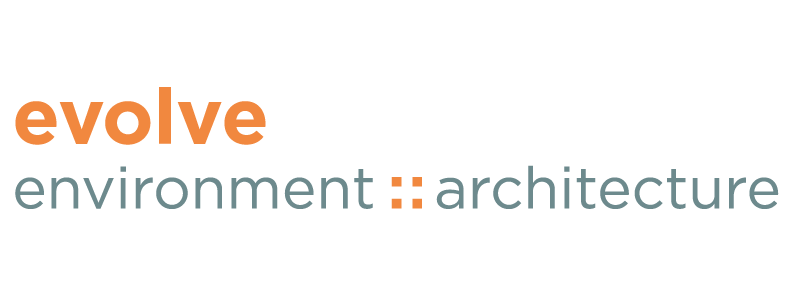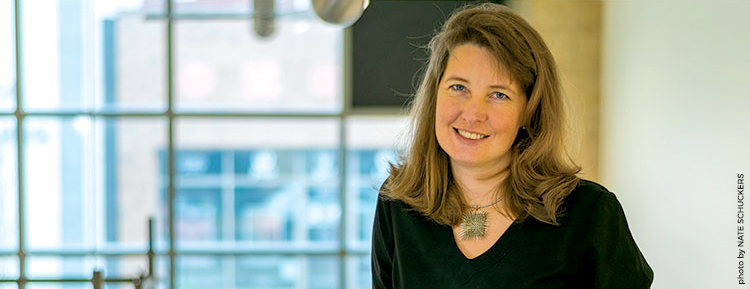Christine Mondor Elevated to 2019 AIA College of Fellows
evolveEA is proud to announce that Christine Mondor has been elevated to the College of Fellows of the American Institute of Architects (AIA). Fellowship is one of the highest honors the AIA can bestow upon a member, and recognizes the achievements of the architect as an individual, as well as the architect’s contribution to the profession and to society.
“I am honored to be elevated to the AIA College of Fellows,” Mondor said. “I am honored by the AIA’s acknowledgment of my practice and teaching of design and sustainability. Fellowship is a validation of the important role that architects can play in advancing sustainability and social equity in our buildings, neighborhoods, and cities.”
Principal and co-founder of evolve environment::architecture, Mondor’s career of over two decades has connected people to places and processes by promoting human-centered design and environmental sustainability while pushing the boundaries of architecture to engage with the systems shaping its context. Mondor’s work has created buildings, places, and organizations that are responsive to their communities, and innovative in addressing challenges such as climate change and economic resiliency.
“Architects play an important role in improving our buildings, neighborhoods, and cities and never has the need been greater. It has been gratifying to build a practice where we can lead and collaborate on critical issues.”
Christine began her career in architecture specializing in the design of affordable housing and leading teams on some of the nation’s first LEED-certified green buildings. In 2004 she co-founded evolveEA, where she has led transformational sustainable design projects across the region and nationally. She is a national leader in the ecodistricts movement for neighborhood-scale sustainability, and has won numerous design and planning awards for community plans and urban design projects. Christine also publishes research on the impacts of green buildings on organizational culture, develops tools for equitable community engagement, and is frequently invited to lecture internationally at professional conferences and universities. Her work on urban infrastructure projects incorporates human-centered design, bringing communities closer to their physical environments and their social context.


